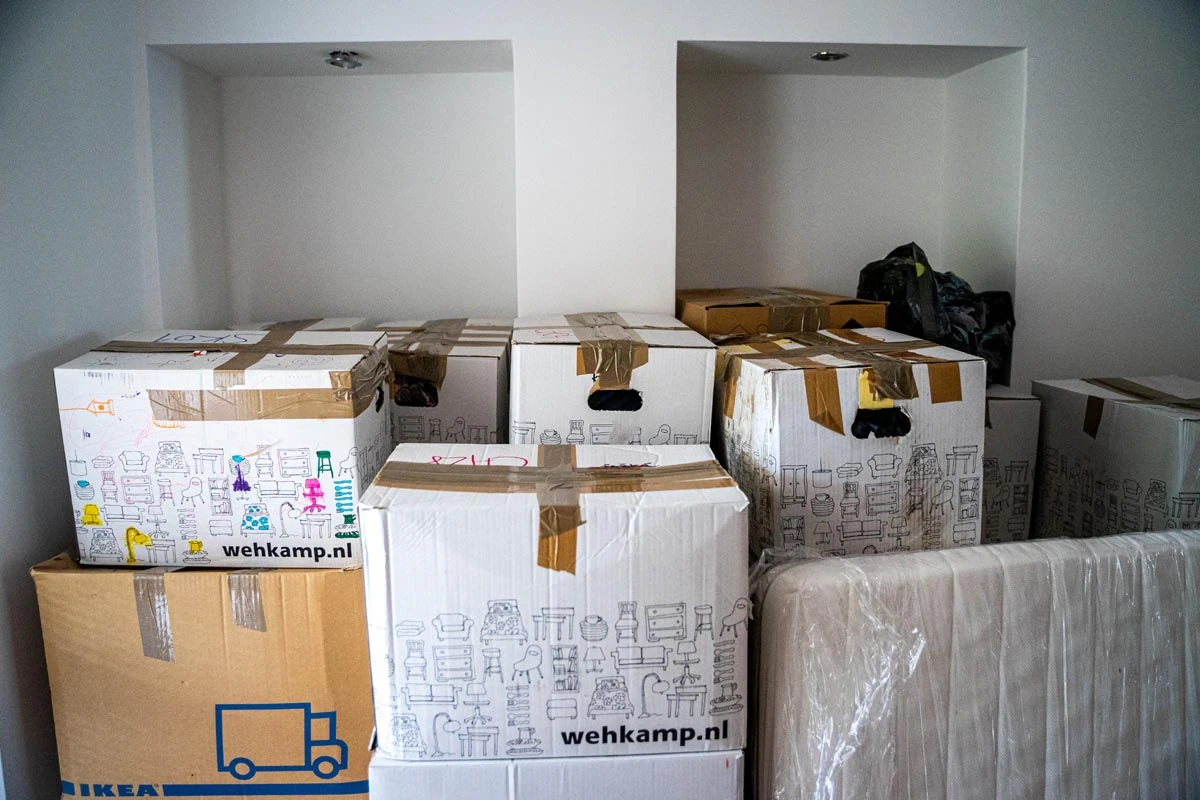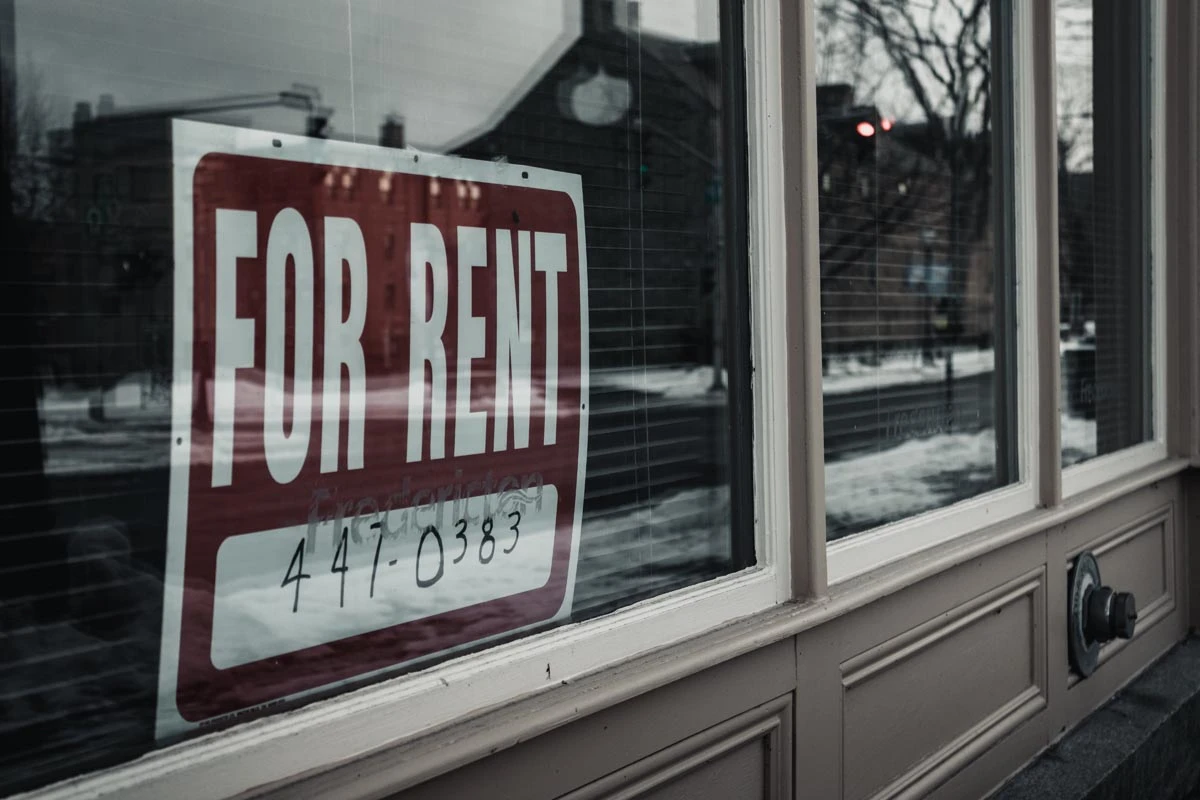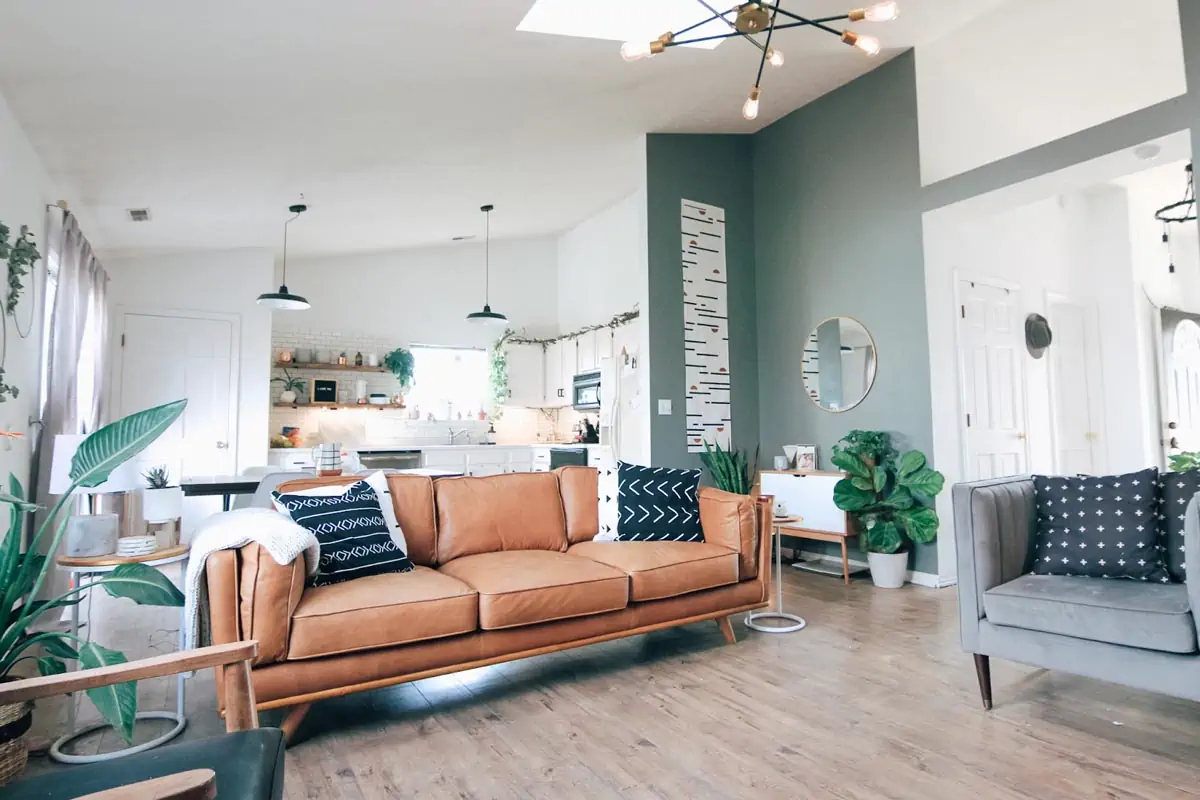The COVID-19 pandemic has significantly changed the way lives were lived in the past two years. Both professional and personal lives circled under one roof, completely changing the lifestyle of each individual in the world.
One thing remains constant amid everything that’s going on, and that is change. Taking on changes in your life can be scarier now with the risks of COVID-19 at bay, especially for big steps like relocating homes.
Moving to a new house seemed like a far-fetched idea during those times. But with help from leasing experts like those in DMCI Homes, finding the perfect home to meet your needs wasn't as difficult as it seemed.
How COVID changed moving
 Photo courtesy of Michal Bolog via Unsplash
Photo courtesy of Michal Bolog via Unsplash
For some, moving is a choice, but for many others whose lives were greatly affected by the pandemic, it has become a necessity because of how COVID changed the “normal” live, work, and rest setup. You may be perceived to believe that moving is purely a voluntary step in one’s life, but for others, it’s the only step they could take.
People move homes because they either:
- Lost their jobs and were forced to come home;
- The lease contract ended and was not able to scout for a new home;
- Moved away from the family to reduce the possible risk of COVID-19;
- Moved closer to job location to alleviate the hassle of commuting amid the pandemic, and;
- Work opportunities outside of the country.
Relocating is not easy and is greatly influenced by your current living situation. If you’re looking to move homes anytime soon, you should consider moving as early as possible.
Why did you move?
 Photo courtesy of Aaron Sousa via Unsplash
Photo courtesy of Aaron Sousa via Unsplash
You might ask, why did you risk heading out to a new place in the middle of a health crisis? When, in fact, you can stay in the comfort (or discomfort) of your home now and wait until the pandemic subsides before making a drastic decision. But, believe it or not, there are reasons why people considered to move.
1. Demand has come down
As businesses were forced to a halt amid the pandemic, the demand for rent in both corporate and residential places declined. In 2020, just when the pandemic started, different developers experienced a 30% decline in sales. Meaning, renting or buying homes became the least priority for many.
But how did this affect your decision to move? Well, for one, you didn’t compete with other possible tenants. You had a variety of condo units, apartments, and bed spaces to choose from without the pressure of deciding immediately because someone else wants to rent it out too.
2. Rent won’t be an issue
At the beginning of the pandemic, land values were seen to drop by 5% to 15% due to the impact of the virus. In turn, rent prices tend to decline as well. This gives you the opportunity to look into condo units that are now well within your budget.
How about in the long term? Won’t landlords increase their rents? They would, but it won’t be a big jump, as Republic Act 9653 or the Rent Control Act limits how much rent could increase on a yearly basis.
Under the Bayanihan 1 and 2 law, renters should have the option to reprieve their payment with a 30-day grace period. This protects you from being evicted when you miss the due date by a few days.
3. A change of pace
Seeing the same four walls 24/7 can take a toll on your mental health. In a mental health study on how remote working impacted mental health, 34% of employees said that working from home has greatly affected work-life balance, while 75% said that the lack of social interaction is one of the reasons why working from home is less enjoyable.
All these factors can take a toll on your mental health, and you should act quickly. Changing your environment may help regain productivity and focus, and moving homes might be the kind of change you need to rekindle that spark.
4. Living independently
Let’s be honest, sometimes working from home with your family just across the hall can cause distractions and maybe additional stress. You can get the peace and ability to focus on work, and at the same time, practice living on your own to develop your independence when you have your own place.
5. Come home to family
While some take the opportunity to live independently amid the pandemic, others take this time to cure their homesickness and come back to live with their immediate families and catch up on everything they missed while living away.
Some people move back home either to save rent money and contribute to the family, especially now where some companies have a purely work-from-home setup. So renting a place near the office seems counterproductive and expensive. Coming home is a financially helpful choice, and can help your homesickness, too.
6. Work Opportunity
Let’s say you get this huge opportunity at work, but it requires you to move across the world? Should you get it? Yes! In a US study, 59% of workers said that they are more willing to relocate for work even amid the COVID-19 pandemic. This says that relocating is seen as a good career move and a good opportunity to explore a new world.
Status of the Philippine Real Estate Market
The Philippine real estate industry is slowly recovering from the effects of the pandemic, with the residential sector leading the way. However, the leasing market has yet to see a significant rebound, as many households remain cautious about their finances. But with the return of foreign employees, there should be a positive impact on residential leasing.
The good news is that rental rates have stabilized and are even beginning to decline in some areas, as landlords become more flexible with terms and conditions. This provides an opportunity for tenants to negotiate better deals on their leases.
Relocation Options
 Photo courtesy of TH Chia via Unsplash
Photo courtesy of TH Chia via Unsplash
Much like everything else in this world, relocation has endless possibilities. You don’t have to confine yourself to a dorm for the rest of the pandemic, or even your life. If you’re keen on relocating as soon as possible, here are some options to choose from:
1. Move back with the folks
A classic and of course, a budget-friendly option is moving back in with the family. As the saying goes, “there’s no place like home”, and going back home means having to pay zero rent dues, getting to eat mom’s homemade foods every day, and enjoying good company after a long day of work.
2. Rent a house
If you wish to live in a bigger location, or you have a lot of items to store, you can also rent a house in the metro. Renting a house is ideal for those who want flexibility in their living space without the extra responsibilities like repairs, taxes, home insurance, and other huge expenses.
3. Rent an apartment
A smaller but equally great option is renting out an apartment. Apartments are relatively smaller than a regular house, but it provides just enough space to move around and separate the areas of rest and work. Like renting a home, you won’t have to worry about major expenses like repairs, home insurance, and maintenance while at the same time, enjoying the flexibility of living in a home.
4. Rent a condo
If you’re looking to move homes because you want to be nearer your work office and enjoy living in the heart of the city. Renting a condo provides you a solemn space to rest, work and at the same time, have everything you need like groceries, offices, recreational facilities within the perimeter.
Are you making the right move?
Renting a condo unit, or even a home, is such a huge step to take. It’s understandable to have doubts and even second thoughts while scouting or even when it’s time to sign the leasing contract.
But, with the right research and assistance from experts, it can be the best, life-changing decision and investment you’ll make. Here are some things to consider to help guide you through the decision-making process.
- The Contract Duration - This is primarily affected by how long you want to stay in a particular unit.Are they offering short-term contracts like six months the most or long-term ones like two years? It’s best to think ahead for this particular condition.
- Hidden Fees - When renting a unit, it’s important to read the fine print thoroughly and look for possible hidden payments and other regulations that may suddenly take you by surprise.While it seems a bit unlikely to happen, hidden fees may ruin your budget for rent in the long run.
- Relocation assistance - There’s absolutely no doubt that moving homes are quite a hassle. If the new lease offers moving assistance like moving vans or vehicles to help you move all your belongings easily, that would be great.
Key Takeaways
Moving homes is a drastic change in your life. Before taking that big step, these key takeaways can help you come to this life-changing decision:
- The move should be better for you
First thing is first when deciding to move: it should be for your own good, and it should make you better - both professionally and personally. If you think that a new place would help your mental health and focus on work, then go for it. - It should be within your budget
Moving is exciting, but this gleeful feeling should not let you go overboard with what you can afford. When scouting for homes, always remember to stay within your budget, so you won’t be tempted to rent a place you can’t afford. - The new home should be comfortable
And last but probably the most important, the new home should make you feel safe and comfortable. The first step in living a better life is finding a place where you can comfortably work, sleep and do your daily chores, so this is something of utmost importance.
Look for the perfect home to move in today. Check out DMCI Leasing Services and get started.










